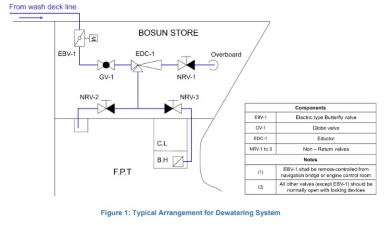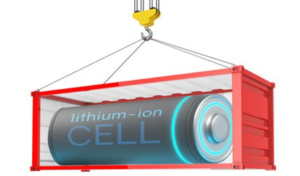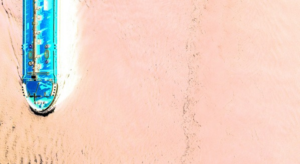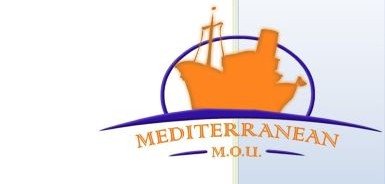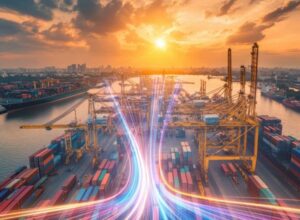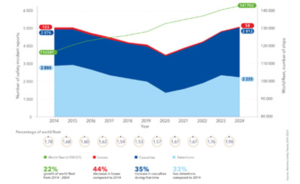
A clear uptick in casualties in 2024, driven by machinery damage/failure and an ageing fleet, stands out in the latest analysis of Lloyd’s List Intelligence casualty data.
The number of maritime casualties rose by 15% in 2024. Coupled with a 7% rise in casualties in 2023, this represents a concerning development for the maritime industry, particularly with the global fleet growing at a considerably slower rate. This trend has now been established for several years. While the overall number of incidents declined by 5% be tween 2014 and 2018, the figure has increased every year since. Between 2018 and 2024, the number of incidents increased by 42%. Over the same period, the number of vessels in the global fleet increased by 10%. Continue reading “Ageing fleet driving increase in incidents”

